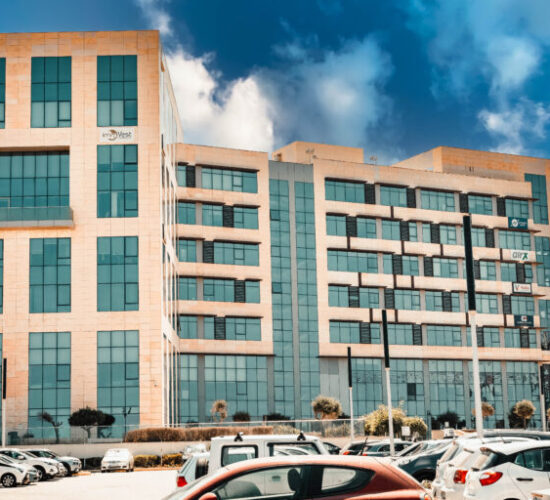We value your privacy
We use cookies to enhance your browsing experience, serve personalised ads or content, and analyse our traffic. By clicking "Accept All", you consent to our use of cookies.
We use cookies to help you navigate efficiently and perform certain functions. You will find detailed information about all cookies under each consent category below.
The cookies that are categorised as "Necessary" are stored on your browser as they are essential for enabling the basic functionalities of the site. ...
Necessary cookies are required to enable the basic features of this site, such as providing secure log-in or adjusting your consent preferences. These cookies do not store any personally identifiable data.
No cookies to display.
Functional cookies help perform certain functionalities like sharing the content of the website on social media platforms, collecting feedback, and other third-party features.
No cookies to display.
Analytical cookies are used to understand how visitors interact with the website. These cookies help provide information on metrics such as the number of visitors, bounce rate, traffic source, etc.
No cookies to display.
Performance cookies are used to understand and analyse the key performance indexes of the website which helps in delivering a better user experience for the visitors.
No cookies to display.
Advertisement cookies are used to provide visitors with customised advertisements based on the pages you visited previously and to analyse the effectiveness of the ad campaigns.
No cookies to display.

The Global College Malta MSc in Leadership and Change Management is a forward-thinking, cutting-edge programme of study that focuses on key challenges that leaders and managers face in the modern business environment. The MSc degree will give you the conceptual and analytical skills needed to become a results-driven professional who can effectively harness innovation in a startup or an existing business.
Through your coursework, which includes a mix of practical and academic assessments, you’ll enhance your abilities around opportunity recognition, product development, commercialisation, operational growth, strategic thinking, and more. You’ll receive support from the College’s teaching team, who have valuable experience in the fields of entrepreneurship and innovation management. Their industry insights will help you understand how to relate your studies directly to your own career.
The MSc degree covers: Innovation management and entrepreneurship frameworks to help develop business strategies; The factors that impact innovation, such as economic, social, environmental, and technological challenges; The role of markets and customers, including the impact that market changes can have on a company; and How to conduct financing for business operations, particularly assessments for new products and business startups.
Our strong emphasis on your personal and leadership development will be supported by regular sessions to develop your skills in a wide range of areas from communication and negotiation to team-building and leadership.
The course is studied on a full-time basis over a period of one year.
| Intakes 2025 | ||
|---|---|---|
| Intake Month | Intake Start Date | Application Close Date |
| January | Monday, 27 January 2025 | Friday, 15 November 2024 |
| April | Monday, 7 April 2025 | Monday, 17 February 2025 |
| May | Monday, 12 May 2025 | Friday, 21 February 2025 |
| June | Monday, 16 June 2025 | Friday, 11 April 2025 |
| August | Monday, 25 August 2025 | Friday, 13 June 2025 |
| November | Monday, 3 November 2025 | Friday, 29 August 2025 |
| Accredited Status | Type of Qualification | Mode of Delivery |
|---|---|---|
| Accredited by the MFHEA |
Master degree
|
Face-to-face |

All the College’s courses will provide you with an in-depth understanding of contemporary management techniques, and will allow you to develop the skills to become an effective and socially responsible manager in local and global arenas, whether in public, private or third sector organisations and enterprises.
The course is studied on a full-time basis over a period of one year.
Accredited by the Malta Further and Higher Education Authority ( MFHEA)
Level 7
Masters degree
90 ECTS
Full Time (Day or Evening Classes): 12 months
Middle to Senior organisational managers in commercial for-profit organisations, the public sector and the voluntary sector.
EQF/MQF level of every module, total learning hours and Module Learning Outcome
| Module Code | Module Name | EQF/MQF level | ECTS | Total hrs of learning |
| GCM-M01 | Marketing in Practice | 7 | 8 | 200 |
| GCM-M02 | Accountancy and Finance | 7 | 8 | 200 |
| GCM-M03 | Research Methods | 7 | 8 | 200 |
| GCM-M04 | Strategic Management | 7 | 8 | 200 |
| GCM-M05 | Organisational Behaviour and Human Resources Management | 7 | 8 | 200 |
| GCM-M06 | Leadership | 7 | 8 | 200 |
| GCM-M11 | Strategic Change | 7 | 8 | 200 |
| GCM-M12 | Business Models | 7 | 8 | 200 |
| GCM-M29 | Major project | 7 | 26 | 650 |
EQF/MQF level of every module, total learning hours and Module Learning Outcome
| Module Code | Module Name | EQF/MQF level | ECTS | Total hrs of learning |
| GCM-M01 | Marketing in Practice | 7 | 8 | 200 |
| GCM-M02 | Accountancy and Finance | 7 | 8 | 200 |
| GCM-M03 | Research Methods | 7 | 8 | 200 |
| GCM-M04 | Strategic Management | 7 | 8 | 200 |
| GCM-M05 | Organisational Behaviour and Human Resources Management | 7 | 8 | 200 |
| GCM-M06 | Leadership | 7 | 8 | 200 |
| GCM-M07 | Economics | 7 | 8 | 200 |
| GCM-M08 | e-Business | 7 | 8 | 200 |
| GCM-M29 | Major project | 7 | 26 | 650 |
Module Teaching & Assessment for all modules except Dissertation
The module will normally have the following assessment regime:
– Written examination: this will typically account for some 40% of the final grade and takes the form of a written examination under controlled conditions.
– Individual Essay(s): this will typically account for some 40% of the final grade and takes the form of a specialised essay. Students will be required to explore an emerging trend or topic within the theory and practice of the module discipline. This will require an extensive search of the relevant academic and practitioner-based literature and students will need to make reference to both academic and industrial/practitioner sources in their written work.
– Group work: this will typically account for some 20% of the final grade and takes the form of a report. A selection of the groups will be invited to present or pitch at the end of the module to a panel.
Module Teaching & Assessment for Dissertation
Each student will be allocated a supervisor who will help them with the development of their project proposal, oversee progress with the project, comment as appropriate on draft materials produced by the student and be available to assist the student with the project, as appropriate.
The dissertation/major project is assessed via the production of a dissertation of some 10,000 to 12,000 words in length.
Where necessary, a viva voce will be conducted in those instances where the provisional mark is considered to be a marginal pass.
To successfully complete the module an overall pass mark of 40% must be achieved.
All assessments will be submitted via the internationally recognised plagiarism software Turnitin.
For Local/EU Students:
| Tuition Fees | Application Fees | Registration Fees |
|---|---|---|
| €8,650 | €100 | €250 |
For International Students:
| Tuition Fees | Application Fees | Visa Sup Doc Fee | Registration Fees |
|---|---|---|---|
| €9,500 | €100 | €200 | €250 |
Fees include:
Registration for programmes can be made either online or by hand. For more information please visit the Admissions Section here
Face-to-face
Total hours : 2250
Total contact hours: 330
Assessment hours – 260
Self-study hours – 1650
Supervised placement and practice hours – 10
Full-time, Part-time
21-65+
English
Link to Identity Malta’s VISA Requirement for third country nationals: https://www.identitymalta.com/unit/central-visa-unit/
Four modules are delivered in the first Semester of the Programme. In the second Semester, a further four modules are delivered. GCM-M29, the Major Project, forms the final part of the Programme following the completion of Semester two.
| Module Name | Learning Outcome |
| GCM-M01 Marketing in Practice |
The study of marketing plays an essential component of the knowledge, skills and competence of middle to senior manager, particularly in a fast moving and complex global marketplace. The module will develop high level and advanced marketing knowledge and skills in the learner. At the end of the module, you will be able to:
|
| GCM-M02 Accountancy and Finance |
Middle to senior managers are expected to manage budgets, control costs and improve productivity. This module will support the development of high level skills in this discipline area and enable students to have confidence in accountancy and finance matters as they assume more senior roles with added responsibilities. At the end of the module, you will be able to:
|
| GCM-M03 Research Methods |
This module provides students with a detailed and contemporary understanding of qualitative and quantitative research activities, as applied in a business and management context. The module will not only support students prior to commencing their dissertation but also help students to understand how data interpretation can support their role in effectively managing organisations at a senior level.
|
| GCM-M04 Strategic Management |
Successful and effective strategic planning and management is essential for any successful organisation. Middle to senior managers must be able to formulate robust and realistic strategic plans. This module explores high level strategic planning concepts and practices. At the end of the module, you will be able to:
|
| GCM-M05 Organisational Behaviour and Human Resource Management |
The study of organisational behaviour and Human Resource Management underpins Strategy, Leadership and Change Management. The module will provide the learner with a detailed understanding of current and emerging global practice in respect of managing and developing an organisation’s human capital. At the end of the module, you will be able to:
|
| GCM-M06 Leadership |
In the absence of effective leadership organisations will fail. This module explores the attributes of what makes an effective organisational leader, the techniques they employ and how effective leaders are essential to sustainable succession planning. At the end of the module, you will be able to:
|
| GCM-M11 Strategic Change |
The World is a rapidly changing environment and this change impacts on the way that organisations behave and respond. This module will equip students with the theoretical and advanced practical models and techniques that can help support them, as managers, to bring about effective and positive organisational change via people and processes. At the end of the module, you will be able to:
|
| GCM-M12 Business Models |
This module explores the critical linkage between a business strategy and organisational operations. The module will give students an understanding of how business strategies develop and emerge with organisations, how organisational business models can evolve, help them classify the various types of business model and enable them to learn how business models can emphasise an organisation’s strengths and help protect the organisation from internal and external pressures. At the end of the module, you will be able to:
|
| GCM-M29 Dissertation/Major Project |
This module is designed to allow students the opportunity to engage in a rigorous piece of personal and independent research arising out of their programme of study and allied to their professional field, and to present their findings through a dissertation.
|